Walking along the streets in Shieldfield, Newcastle, it’s likely you’ve passed by Star and Shadow Cinema numerous times. Whether or not you’ve known what it is or what it even looks like, is, however, is a completely different question.
Set in what looks like an abandoned warehouse, Star and Shadow cinema has been around as a vision of independent culture since the early 2000s. With people at the heart of it all, there is a special focus on liberal activism alongside DIY music, art and film to create a community of creative and radical identity.
My first introduction to the niche space was through a concert I attended in November. Tickets were 10 pounds to go see an up and coming local singer-songwriter Elizabeth Liddle, who sang in a cosy venue room surrounded by a stage of carpets and candles. The audience consisted of a blend of characters – old men in trench coats, women in their thirties ready to hit the clubs, teenagers dancing and spinning around with their parents. There was no way of pinpointing exactly what crowd this event was aimed for, as far as I could tell – it was for the people – any and all people.
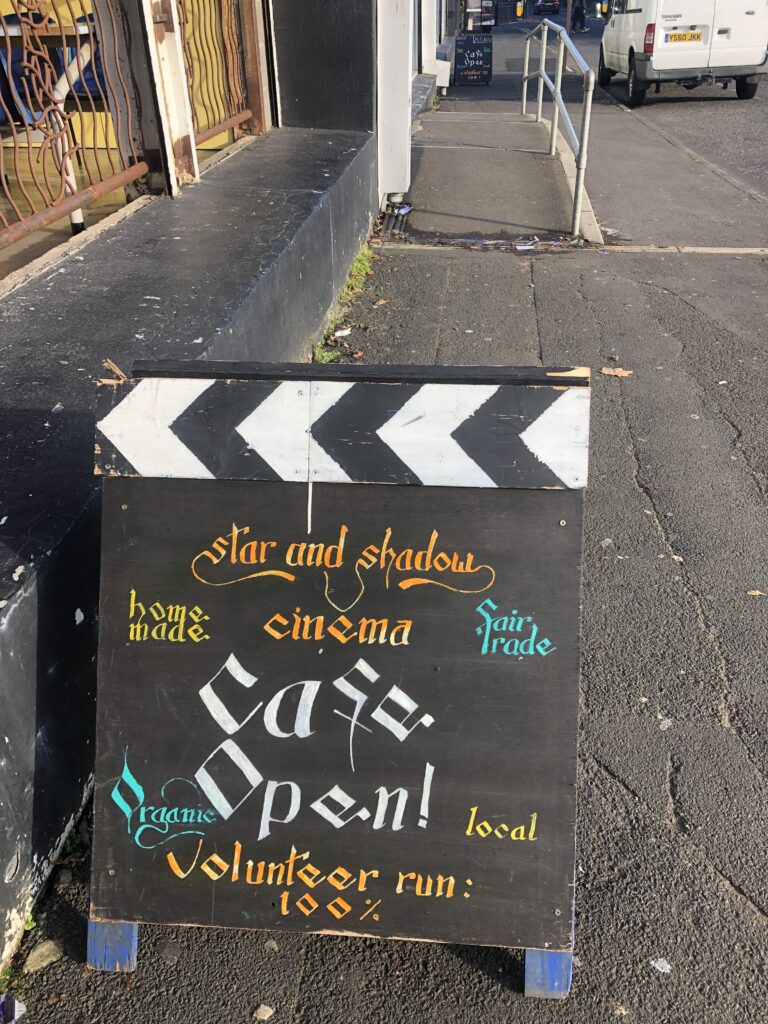
Outside the Star and Shadow Cinema. Image credit: Marina Snyder
Intrigued and itching to know more about the space and events put on, I came back on Sunday, which is advertised to have ‘art club’ ‘knitting club’ and an open café from 12pm to 4pm. Speaking to some of the people there, I soon became aware of the fact that it is 100% volunteer-led. From the cinema, to the music venue, to the people serving drinks and food, everyone was dedicating their free time to help the star and shadow run.
And it goes deeper than that…the entire space was built by the community. The concrete was poured by the people of Shieldfield’s own hands. The cinema’s seats are donated by Newcastle’s cinemas, and walls are painted by local artists. Star and Shadow has taken the ethos of ‘community led’ to an entire new level, and when you walk in, you can feel the heart and spirit of the volunteers from the first step.
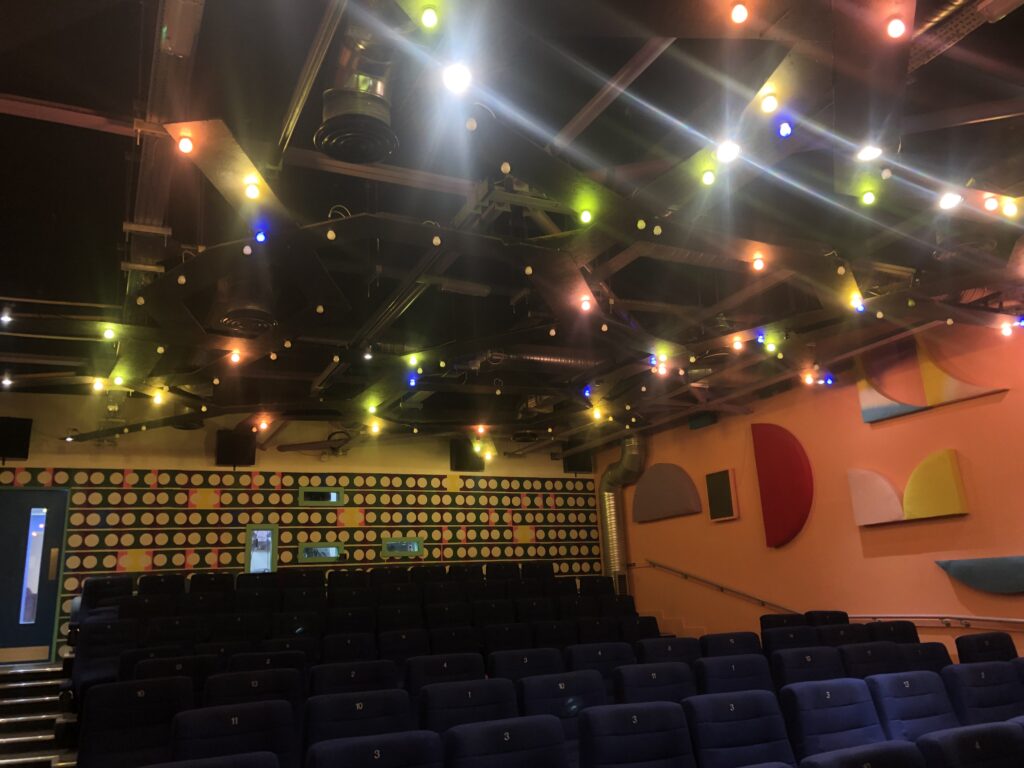
The Star and Shadow cinema, Image credit: Marina Snyder
Later in the afternoon I also had the pleasure of sitting down with one of the volunteers, Ana Barbir, who has dedicated 4 years alongside her husband, to helping out at the Star and Shadow. When I asked her about what Star and Shadow ethos is, the phrase “We not I, us not me” popped up emphasising that the space “encourages people to have ideas and find support for people in the community to make it happen”. Evidence of this support is nothing less but evident through the various events Star and Shadow puts on a year such as a community kitchen to provide warm meals as well as pay as you feel films and a Shielfield football tournament to bring people together.
With that said, it hasn’t always been smooth sailing for the Star and Shadow, particularly with the rising costs at hand. “During Covid, that was a big problem (with the cost of living crisis) because we make our money by people getting in. I think after covid it took a long while to continue to get things going. Another problem is that the electricity has gone up, so some volunteers have put on gigs just to try raise the money to be able to try and afford electricity” Ana mentioned.
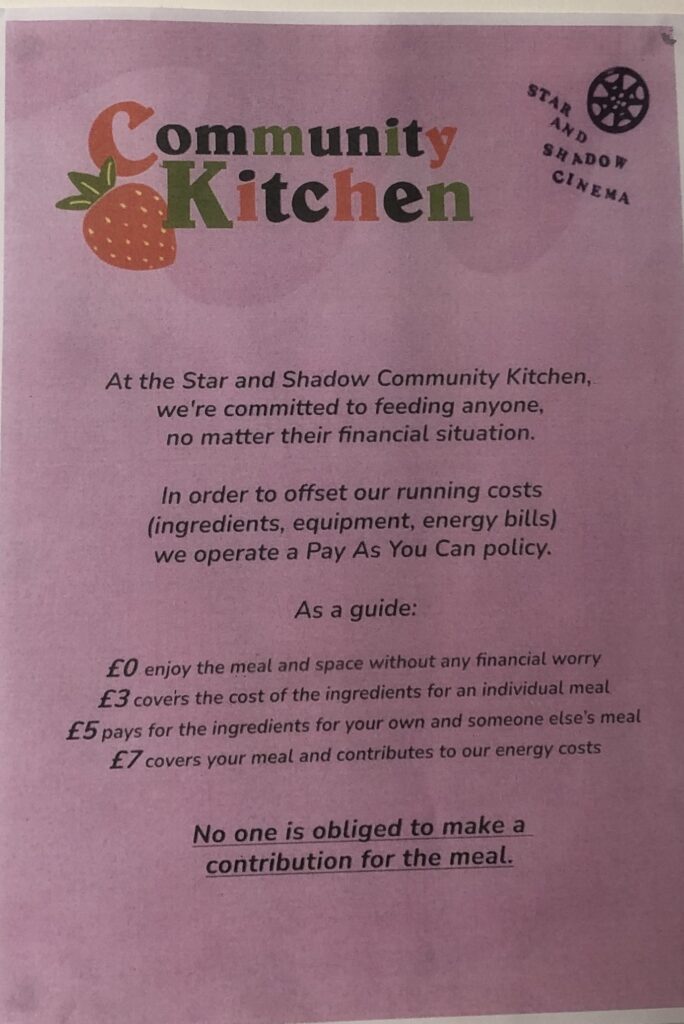
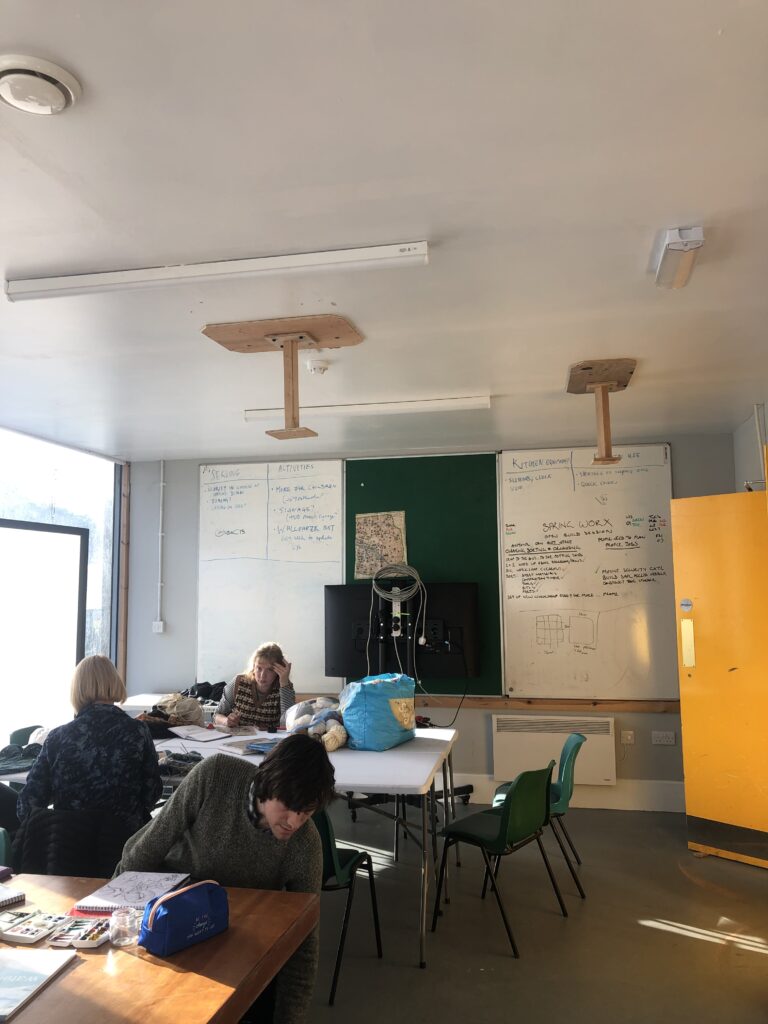
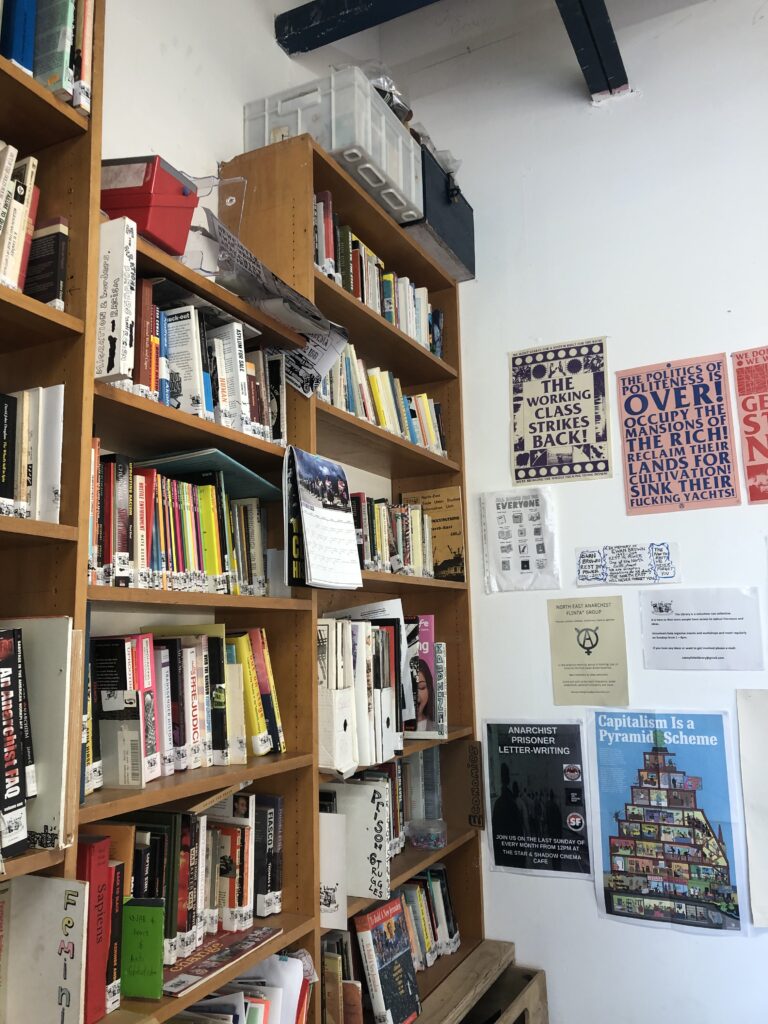
Left to right: Poster advertising the ‘Community Kitchen’ event by Star and Shadow, Sunday free ‘Art club, Political and liberal books displayed in the communal space Image credit: Marina Snyder
One of the only reasons I met Ana to begin with was through my attendance of one of the private volunteer meetings, which gave me an insight into the innerworkings of this collectivist operation. The meeting involved just four volunteers from different ages, backgrounds and jobs, and yet the limited number of people involved did not have any affect on the length of these conversations. Having no hierarchy meant that the democratic process of decision making was discussed in length, and only made once reaching a consensus. The processes itself seemed to embody everything the venue stood for – it was disorganised and chaotic but the main idea was that everyone had to have a say, and therefore it wasn’t just about how the people mattered, but the idea that they could come together and agree, for the greater good of everyone.
It was made clear to me that the Star and Shadow has always been around to help the community, however this relationship is perhaps a co-dependent one. The space needs people to attend events and to help volunteer in order to succeed in it’s mission to help the community, and whether this idea is sustainable enough in a time in which people are struggling to live, is questionable.
With that said, spaces like Star and Shadow are therefore, now than ever, more important and needed within society to bring people together and to spark a need to help one another, especially in a time of need. Star and Shadow is not just a venue used to support and provide financial aid, it is something much more bigger than that and perhaps crucial. The space symbolises an overall collectivist ideology – it promotes a society with a focus on community and the needs as a group rather than as a individual. And though these movements have existed in other locations before, such as Cinema Nova in Brussels, never has it been on quite the scale Star and Shadow has come to be.
From what I’ve gathered, Star and Shadow is a place of contradictions – even in its name with the brightly lit ‘star’ in juxtaposition to the dark ‘shadow’, and yet; it works. A volunteer-led ‘business’, a democratic process run through the power of one vote and a place from the people, for the people. Perhaps that is why it works so well, sometimes the places that makes little sense, are the ones we need to force a needed change within society, and that, is just what the Star and Shadow manages to accomplish.
Find out more about Star and Shadow Cinema by visiting their website: https://starandshadow.org.uk/about/sas/
And their social media:
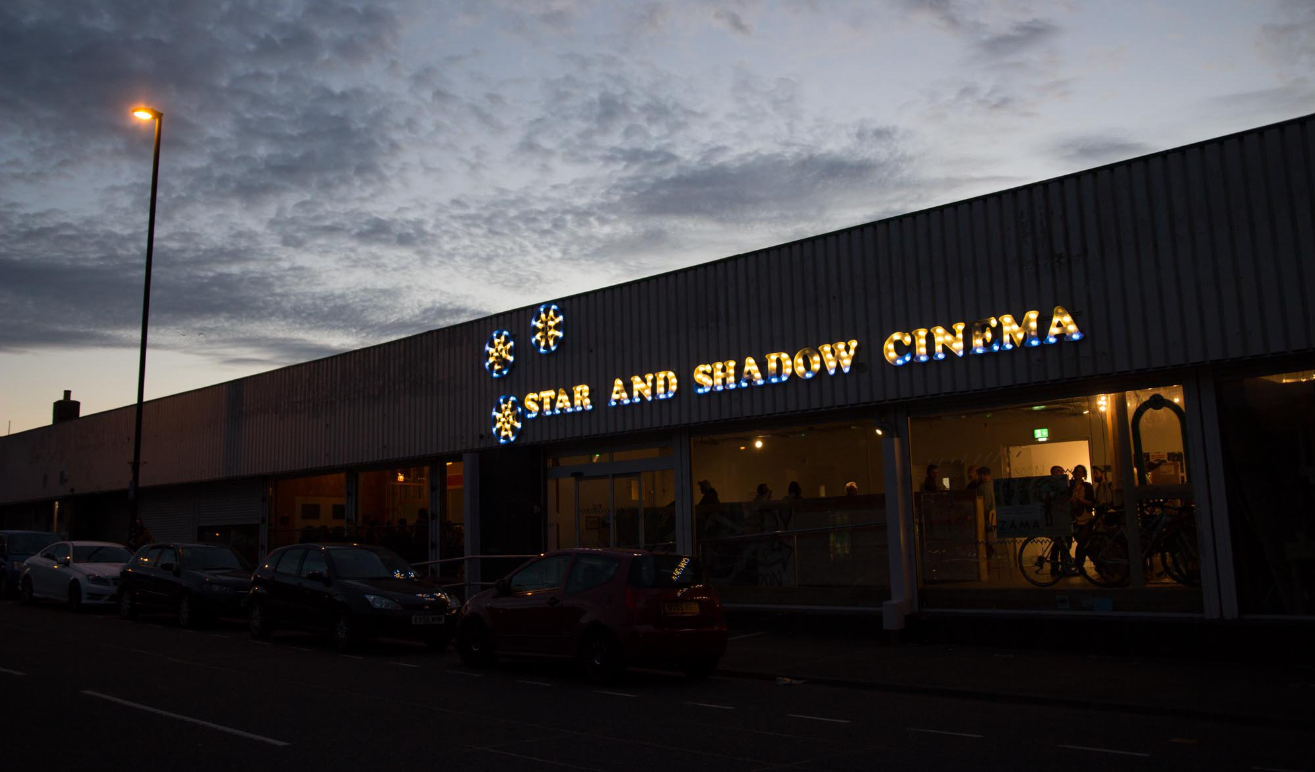
Leave a Reply